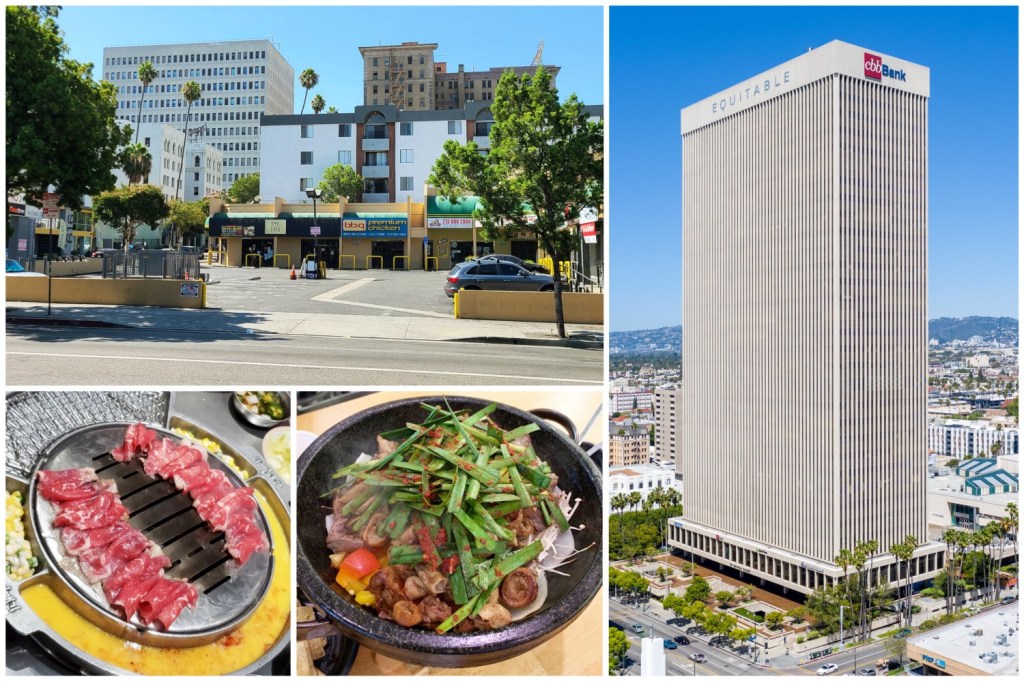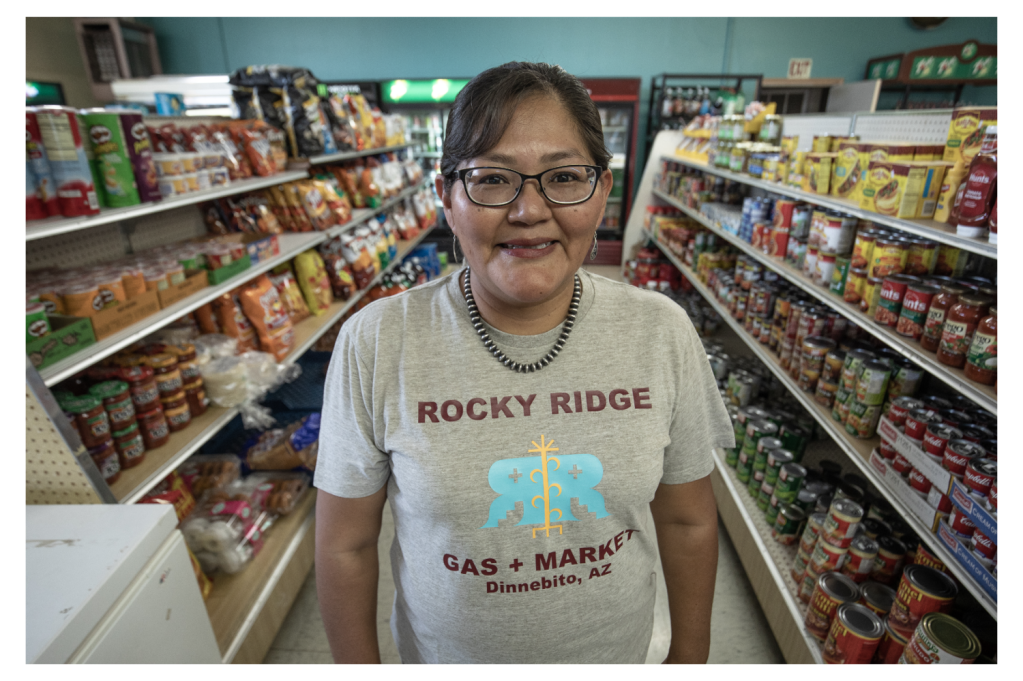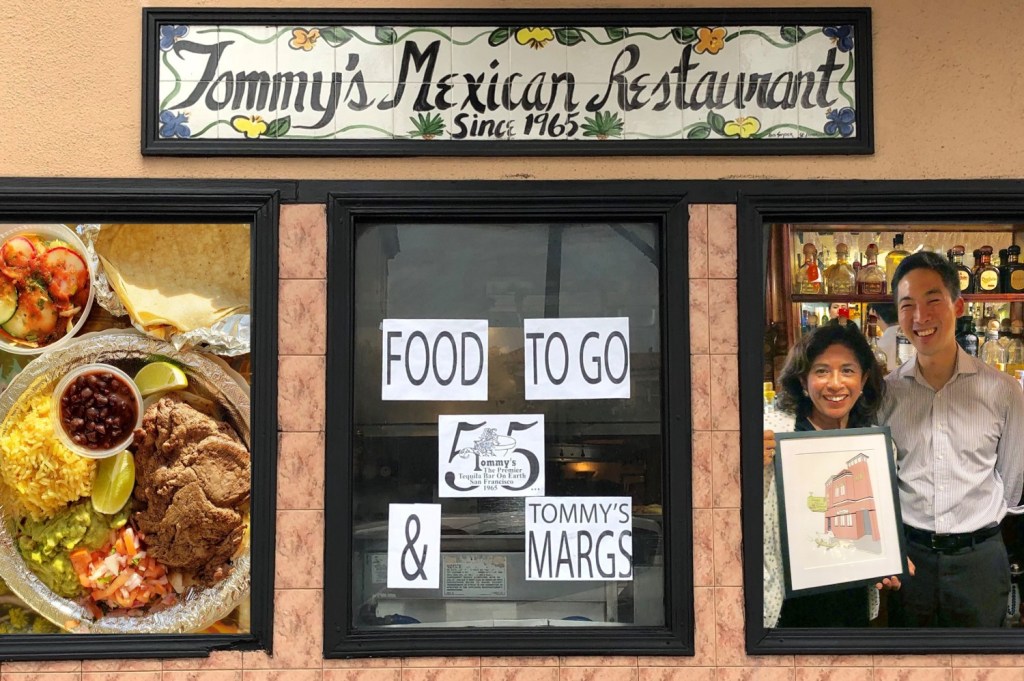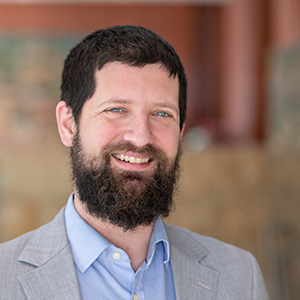One of Cynthia Day’s teams managing applications for the Paycheck Protection Program (PPP) hadn’t heard from one of their longtime customers. Day, the CEO at Citizens Trust Bank, says her team knew the client’s assisted-living facility was probably struggling during the pandemic and might benefit from a loan. Figuring their client was probably too busy to investigate the program, they picked up the phone.
They were right. The facility’s owner and his entire family weren’t just figuring out how to keep their residents safe while dealing with the economic fallout from COVID-19—they were also recovering from the virus themselves. Thanks to Citizens Trust’s outreach, the assisted-living facility received a PPP loan.
The team at Citizens Trust received an emotional testimony thanking them for their work in providing a critical lifeline for the business. “The facility’s owner said we were like family because we reached out at a time when he couldn’t,” says Day, Citizen Trust’s chief executive officer.
Community banks understand—and respond to—community needs
The PPP was a part of the federal government’s financial relief for small businesses during the pandemic. The program offered loans that were intended to help small businesses keep their employees on the payroll. The low-cost loans do not have to be paid back if a business meets certain requirements when it uses the funds.
To receive a PPP loan, small businesses needed to go through certain authorized lenders. Citizens Trust Bank is one such lender operating in the Atlanta region and parts of Alabama. It is also a Black-owned, minority-owned depository institution (MDI) with more than $400 million in assets.
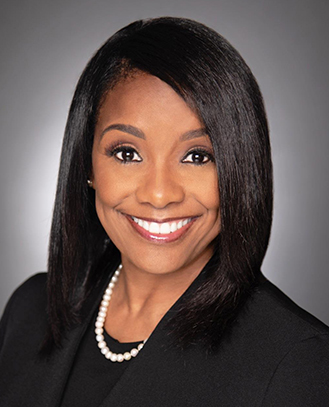
Federal agencies designate banks as MDIs if at least 51 percent of their voting stock is owned by Black, Native American, Hispanic, or Asian shareholders. MDIs often serve a diverse customer base and do not exclusively work with customers or business owners of color.
Day believes businesses often overlook community banks because of their smaller footprint. Larger lenders might appear to be more convenient. Easy access to branches or other services can outweigh the value of relationships when customers are looking to complete their regular banking tasks.
But large banks’ perceived convenience advantages evaporated for many small businesses during the PPP application process. Applying for relief was not straightforward, and businesses were trying to figure out the process while navigating unprecedented challenges to their enterprises.
Early reports suggest businesses owned by people of color had a harder time finding a lender to process their PPP application. For some of these business owners, like Morris Council, even a pre-existing relationship with a large lender did not help in his initial attempts to receive a PPP loan.
Council founded MC&T Electronics, Inc. in 1988, seven years after he studied business machine maintenance. Council and his three employees sell and service office equipment, both new and refurbished, like copiers, printers, typewriters, fax machines, and scanners. The company often works on maintenance contracts, and it earns most of its revenue through sales of equipment and office supplies and service calls.
Council likes calling his own shots. He wears a lot of hats for his business—sales agent, repair person, manager, and more. He maintains constant availability for his customers, always replying as quickly as possible and offering same-day service and deliveries, and he believes that’s the most appealing part of his business to customers.
As the pandemic intensified and MC&T’s service calls started to slow down, Council read about the PPP and thought it would be a good fit for his business. He got everything he needed for the application and called the large bank he’d done business with for four years. In stark contrast to his own standard operating procedure, the bank didn’t call him back.
Then someone recommended he work with a small, local bank. His wife happened to know about Citizens Trust Bank, so that’s where he turned. The difference was night and day.
“Citizens Trust Bank treated me like I was their only customer,” he said. “If nobody was there when I called, they’d call back almost right away. They were always ‘Johnny-on-the-spot.’”
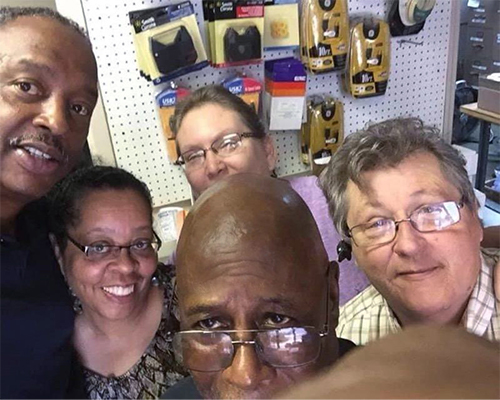
Council wasn’t the only new client to find his or her way to Citizens Trust Bank when a large bank was unhelpful during the PPP process—and he wasn’t the only one to express gratitude at the community bank’s responsiveness.
Unlike Council, who was mostly prepared to apply for a PPP loan when he approached Citizens, many other small-business owners weren’t. Some knew only a little bit about the program, and others lacked critical paperwork needed to file. Walking customers through the program required a lot of patience and commitment, explains Day.
“This crisis has made it more apparent than ever how much we are needed in our communities,” says Day. “Having us here as a trusted advisor, as someone that understands and makes our customers feel comfortable asking questions, can’t be replaced.”
A PPP lineup that reflects the ‘tapestry’ of community
Day says the bank’s ability to connect with customers like Council derived from its presence in the Atlanta and Alabama neighborhoods where Citizens Trust Bank’s own employees work and live. “Our clients are a tapestry of the communities we serve,” she says.
Citizens Trust Bank’s PPP portfolio came to reflect the diversity of that tapestry, as the bank assisted shops, hotels, veterinarians, medical establishments, homeless shelters, and more. The bank’s PPP loans totaled $30 million altogether, representing about 350 employers.
The bank’s willingness to work with a wide range of clients is captured in the range of PPP loan sizes they serviced. Their PPP portfolio included loans as small as $400 and as large as $2 million.
There aren’t many banks willing to work with customers looking for a $400 PPP loan, Day says. When businesses call Citizens Trust, though, they can connect with a person—and one who may be their neighbor. That means a lot for employers like Council. “Working with Citizens Trust Bank, I felt like I had my own personal banker,” he said. “That’s really hard to find these days.”
Day says they hear that a lot. “That’s the benefit of being a bank that’s of the community and not just in the community,” she says. “This has been our differentiator, and the pandemic has highlighted the significance of having that relationship with your community bank.”
Building the plane and flying it
The sheer volume of PPP loans processed by Citizens Trust Bank was hard to imagine in advance. Citizens Trust staff processed about six months’ worth of loan volume in a matter of weeks. The bank itself was already facing challenges as it adapted to pandemic-related requirements for its workforce. And, on top of it all, it was in the midst of a planned system conversion for its core services.
Day, who has worked at Citizens Trust for 17 years, had faith her team and community could rise to the challenge. “Our team is resilient, our customers are resilient,” she says. “We found that out during the Great Recession.”
The team at Citizens Trust worked long hours to help as many people as possible. It had to send applications to the Small Business Administration (SBA) to be processed, and the SBA’s system was strained beyond capacity. Citizens Trust staff began working in shifts to make sure their applications got through when the system was available, clicking “send” at all hours of the night.
“We were building the plane and flying it at the same time,” Day says. “It put a tremendous human resource strain on our bank.”
PPP funding came in two rounds. During the first round, the initial rush to apply left many people in the communities served by Citizens Trust behind. The second round, says Day, “was tremendous for the communities that didn’t get the opportunity the first time around.”
The extended timeline gave Citizens Trust Bank an opportunity to advise its clients and figure out what documentation would be necessary to receive a PPP loan and how the program might fit the client’s needs. By the end of the first round, Citizens Trust had tested an online portal for its clients. The portal was ready to go for the second round, reducing the workload for staff managing the applications process.
Day hopes the experience will lead to better relationships with both their new and old clients in the long term. “This has forced some of our customers to learn to navigate digital banking,” she says. “For others, it has driven home the importance of face-to-face interactions and relationships.”
More work to be done
The PPP has not ended the existential threat many businesses face during the era of COVID-19. Data on the program’s recipients by race remain limited but indicate that the program’s design made it more difficult to access for businesses with Black or indigenous owners or other owners of color.
Day acknowledges that many were not reached by the PPP and that more work remains to be done. But the frenetic pace of the PPP era renewed her commitment and sense of purpose.
“Customers told us, ‘You saved our businesses. You saved jobs. We wouldn’t have made it if you guys weren’t here and didn’t walk us through this,’” says Day. “Connecting people to PPP has been surreal, rewarding, and gratifying. It lets me know that when I get up every morning, that the job I’m doing makes a difference.”
The views expressed in this post are those of the contributing author and do not necessarily reflect the views of the Minneapolis Fed or the Federal Reserve System.
The Federal Reserve System is working to support small lenders and small businesses during the COVID-19 pandemic. For more about the Fed’s work on small businesses, including access to credit, see Fed Small Business and the Federal Reserve COVID-19 CDFI Survey.
For more on the history of Black-owned banks in the United States, contact the Kansas City Fed for a free copy of the book Let Us Put Our Money Together: The Founding of America’s First Black Banks.
Want to see more content like this going forward? Sign up for the Fed Communities mailing list.









